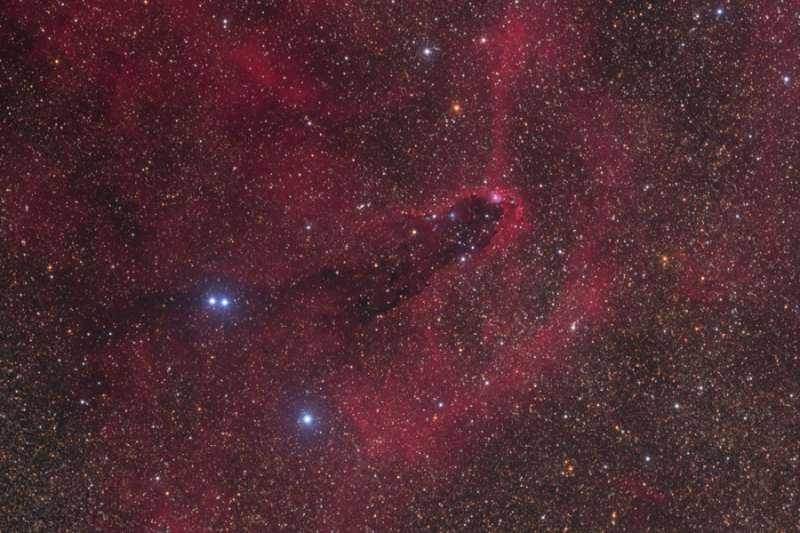
|
Credit & Copyright: Thomas V. Davis
(tvdavisastropix.com)
Explanation:
In silhouette against a crowded star field
toward the constellation
Scorpius,
this dusty cosmic cloud evokes for some the image of an ominous
dark tower.
In fact, clumps of dust and molecular gas
collapsing
to form stars may well lurk within the dark nebula,
a structure that spans almost 40 light-years across the
gorgeous
telescopic view.
Known as a
cometary globule, the swept-back cloud,
extending from the lower left to the head (top of the tower) right and
above center, is shaped by intense ultraviolet radiation from
the OB association of very hot
stars
in NGC
6231, off the left edge of the scene.
That energetic ultraviolet light also powers the globule's bordering
reddish glow of hydrogen gas.
Hot stars embedded in the dust
can be seen as bluish
reflection nebulae.
This dark tower,
NGC 6231, and
associated nebulae are about 5,000 light-years away.
|
January February March April May June July August September October November December |
| ||||||||||||||||||||||||||||||||||||||||||||||||
NASA Web Site Statements, Warnings, and Disclaimers
NASA Official: Jay Norris. Specific rights apply.
A service of: LHEA at NASA / GSFC
& Michigan Tech. U.
Based on Astronomy Picture
Of the Day
Publications with keywords: Scorpius - dark nebula - cometary globule
Publications with words: Scorpius - dark nebula - cometary globule
See also:
